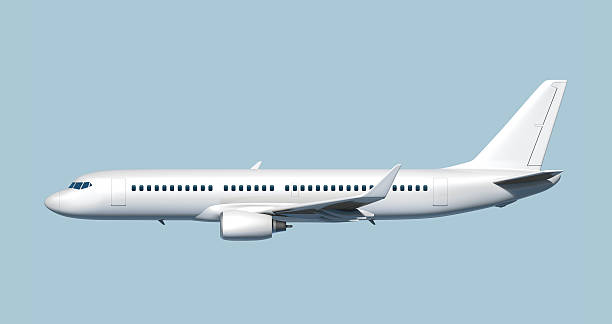By Godwin Anyebe
The aviation industry in Nigeria is an essential part of the country’s economy, connecting the nation to global markets and enabling the movement of people and goods. With over 200 million people and a rapidly growing middle class, Nigeria’s aviation sector has immense potential. Yet, it faces significant challenges that must be addressed to ensure sustainable growth. As the industry evolves, driven by new technologies and government policies, there is a growing need for innovative solutions to navigate these challenges and unlock the full potential of Nigeria’s aviation sector.
Current State of Nigeria’s Aviation Industry
Nigeria is home to several major airports, including the Murtala Muhammed International Airport in Lagos and the Nnamdi Azikiwe International Airport in Abuja, serving as key hubs for both domestic and international travel. According to the Nigerian Civil Aviation Authority (NCAA), the country witnessed a significant rise in passenger traffic before the COVID-19 pandemic, with airlines such as Air Peace, Dana Air, and Arik Air dominating the domestic market.
However, the pandemic severely impacted the industry, causing a decline in passenger numbers, revenue losses, and flight cancellations. Despite the setbacks, Nigeria’s aviation sector is slowly recovering, and there is cautious optimism about its future. The sector has shown resilience, with domestic air travel bouncing back faster than expected, and there are growing opportunities in cargo services, driven by e-commerce and logistics demands.
Challenges Facing Nigeria’s Aviation Sector
While the potential is undeniable, Nigeria’s aviation industry faces a myriad of challenges that hinder its growth. One of the most pressing issues is the inadequate infrastructure at airports. Outdated facilities, poor maintenance, and limited capacity at major airports often lead to flight delays and cancellations, negatively impacting customer satisfaction and the overall efficiency of the sector.
Additionally, aviation fuel scarcity and high operational costs pose significant hurdles for airlines. The fluctuating price of aviation fuel, coupled with high taxes and the devaluation of the naira, makes it difficult for airlines to maintain competitive pricing. Many airlines have struggled to remain profitable, with some reducing their flight routes or suspending operations entirely due to rising costs.
Regulation and governance in the sector also remain areas of concern. While the NCAA has made progress in enforcing international safety standards, there is still a need for more consistent oversight, improved transparency, and effective policymaking. Navigating the complex regulatory environment can be challenging for both local and foreign airlines, stifling potential investments in the sector.
Innovations Shaping the Future of Aviation
Despite these challenges, innovation is set to play a pivotal role in shaping the future of aviation in Nigeria. Technology is driving efficiency in the industry, with many airlines adopting digital platforms for ticketing, booking, and customer service. This shift towards digitization is improving customer experience and helping airlines reduce operational costs.
Additionally, new technologies in aviation safety and air traffic management are being explored. The Nigerian Airspace Management Agency (NAMA) is working to modernize its air traffic control systems, which would lead to improved safety and better management of Nigeria’s increasingly congested airspace. This technological advancement is critical, particularly as the number of flights increases due to growing domestic demand and the expansion of international routes.
The development of new airport terminals and the expansion of existing ones also signal progress. For example, the recently completed terminal at Nnamdi Azikiwe International Airport in Abuja is part of a broader effort to upgrade Nigeria’s aviation infrastructure. These expansions aim to enhance capacity, improve passenger experience, and make Nigerian airports more competitive on the global stage.
The Role of Government in the Industry’s Growth
The Nigerian government plays a crucial role in shaping the future of aviation in the country. Through policies such as the National Aviation Development Roadmap, the government has outlined its plans to make the sector a key driver of economic growth. One of the key pillars of this roadmap is the establishment of a national carrier, which aims to increase competition, provide better connectivity, and reduce the dominance of foreign airlines in the Nigerian market.
Additionally, the Nigerian government has prioritized the development of maintenance, repair, and overhaul (MRO) facilities in the country. Currently, Nigerian airlines have to send their aircraft abroad for maintenance, which is costly and time-consuming. By building MRO facilities locally, the government hopes to reduce costs for airlines and create jobs within the aviation sector.
There is also an increasing focus on public-private partnerships (PPPs) to drive infrastructure development. Several airports are undergoing privatization efforts, allowing private investors to contribute to the modernization and management of key airports. This approach could improve efficiency and service delivery while reducing the financial burden on the government.
Speaking on this development, Ifedayo Ikotun, an aviation expert with years of experience in Nigeria’s aviation sector, offers a balanced view on the future of aviation in the country. While he acknowledges the potential for growth, he believes that success will hinge on strategic reforms, infrastructure development, and the adoption of new technologies.
“The aviation sector in Nigeria is at a critical juncture,” says Ikotun. “We’ve seen some improvements in infrastructure and a growing appetite for air travel, but the challenges we face could easily limit our potential if not addressed effectively. Airport infrastructure, aviation fuel costs, and poor regulatory oversight remain major bottlenecks.”
Ikotun highlights the issue of outdated airport infrastructure, noting that many Nigerian airports are not equipped to handle the increasing volume of passengers or the technical demands of modern aviation. “For us to truly navigate new heights, the focus should be on upgrading and expanding airports, particularly in key cities. Lagos and Abuja can’t be the only hubs; other regions need to be developed to accommodate rising demand.”
On the topic of innovation, Ikotun is optimistic. He points to the digital transformation happening across airlines and the modernization of air traffic systems as positive steps. “Technology is reshaping how airlines do business, from online ticketing to customer service. The ongoing upgrade of air traffic management systems will also make our airspace safer and more efficient. These are signs that Nigeria’s aviation industry is moving in the right direction.”
However, Ikotun stresses the importance of better governance and regulatory frameworks. “While innovation is crucial, it must be supported by strong regulatory policies. The NCAA has made some progress, but we need more transparency and efficiency in the way the sector is regulated. If we can streamline regulatory processes and make the sector more attractive for investors, we’ll see even more growth.”
In conclusion, Ikotun believes that the future of aviation in Nigeria holds immense promise but will require coordinated efforts from both the government and private sector. “We are on the cusp of something big. If we can modernize infrastructure, stabilize operational costs, and foster a conducive business environment, there’s no reason Nigeria can’t become a major aviation hub for Africa.”
On his part, Charles Tokunbo, a seasoned aviation expert, offers a pragmatic yet hopeful outlook on the future of aviation in Nigeria. He acknowledges both the significant strides the industry has made and the deep-rooted challenges that still need to be addressed. For Tokunbo, the key to the sector’s future lies in strategic investment, robust policy frameworks, and embracing technology.
“Nigeria’s aviation industry has the potential to become a major player in Africa, but the current infrastructure and operational challenges must be addressed,” Tokunbo begins. “Our airports, while improving, still lag behind international standards in terms of capacity, safety, and customer experience. Without a serious investment in modernizing these facilities, we’ll struggle to keep up with the rising demand for both passenger and cargo transport.”
Tokunbo stresses that one of the biggest challenges facing the sector is the high cost of aviation fuel, which contributes to increased operational costs for airlines. “Aviation fuel is one of the largest expenses for Nigerian airlines, and the fluctuating price of fuel only adds to the unpredictability. Unless we find a way to stabilize these costs—whether through local refining or government subsidies—it will be difficult for airlines to remain competitive, especially in the domestic market.”
Beyond infrastructure and fuel costs, Tokunbo is a firm advocate for technological integration and innovation. He points to the growing use of digital platforms for ticketing, maintenance, and air traffic control as a positive sign of what’s possible. “The aviation sector globally is embracing technology, and Nigeria must do the same. From streamlining booking processes to automating safety checks, technology can help us reduce costs, improve efficiency, and enhance the overall customer experience.”
Tokunbo also believes that the government’s role is crucial in shaping the future of the industry. “The government has to create an enabling environment through clear, consistent policies. We need regulatory reforms that will encourage private sector investment, reduce red tape, and ensure that Nigeria is an attractive destination for both local and international airlines.”
On the future of Nigeria as a potential aviation hub, Tokunbo remains cautiously optimistic. “If we can address the current challenges—modernize infrastructure, stabilize fuel costs, and implement forward-thinking regulations—Nigeria could easily become a key hub for aviation in Africa. We have the geographical advantage, and with the AfCFTA opening up new trade routes, the opportunities are there for us to seize.”
In conclusion, Tokunbo sees the future of aviation in Nigeria as promising but dependent on action. “We have to start now. The aviation sector is critical to our economy, and if we want to navigate new heights, it will take coordinated efforts from both the public and private sectors to ensure long-term growth and sustainability.”









